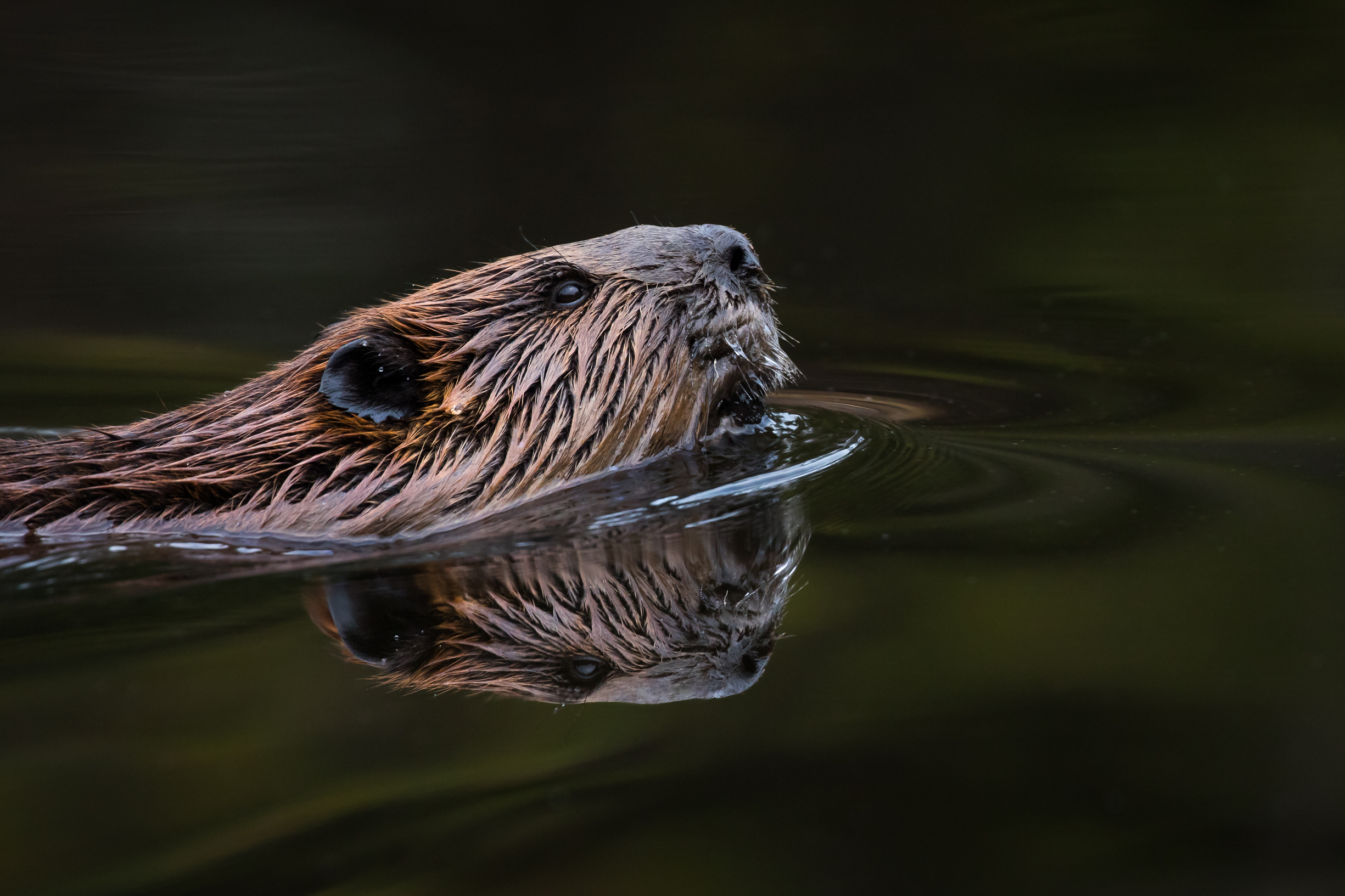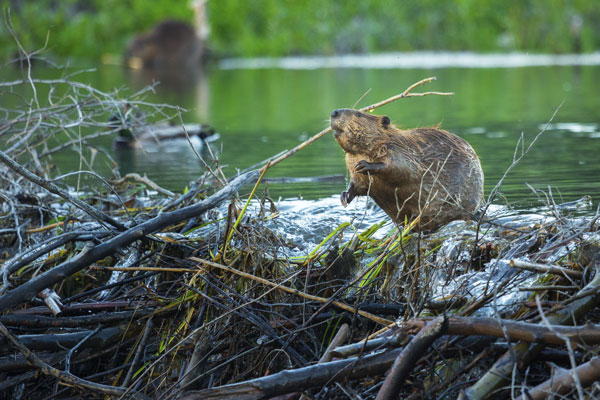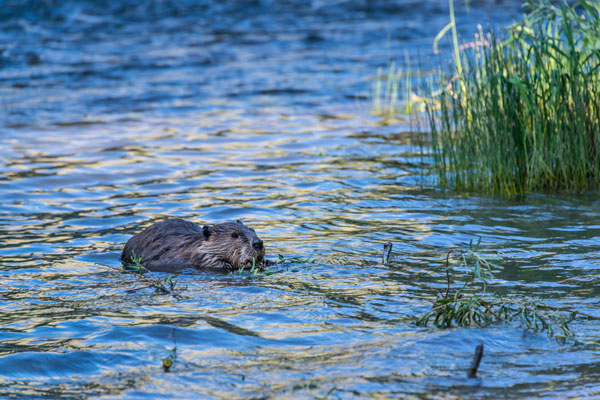The Benefits of Beavers
Wildlife advocates want to harness beavers' benefits.





The largest rodent in North America north of Panama, beavers exert profound influence on the wetland and riparian habitats they occupy. A mostly nocturnal rodent, beavers build dams of sticks and mud across streams and can be found living in ponds, small lakes, streams, and rivers. A strict herbivore, the beaver eats a combination of woody and herbaceous species, such as mountain alder, aspen, and willows. While the effects of beavers occupying an area can vary, in smaller headwater stream systems beaver activities expand and maintain healthy and productive riparian and wetland habitats.
Beavers are considered a keystone species and an ecosystem engineer because they drastically modify the habitats they occupy, creating conditions that allow certain plant and animals species to inhabit an area where they may not otherwise occur. Beaver colonies within a drainage exist as a shifting mosaic of environmental conditions, dependent upon pond age and size, successional status, substrate, hydrologic characteristics, and resource inputs, providing a wide variety of habitat types in both the aquatic and terrestrial realms.
For annual harvest reports, click here.
Owners and lessees of property being damaged by beaver or muskrat as described in MCA 87-6-602(2) may request a free permit to remove beaver or muskrat and may remove beaver or muskrat without a permit between June 1 and Aug. 31.
Please contact an FWP employee in your administrative region for further information and to request a damage control permit.
A person participating in a beaver or muskrat damage complaint must have in their possession the damage permit issued to the landowner (or a copy thereof) during control activities. Damaging beaver or muskrat may be removed by trapping or shooting. A person may possess beaver or muskrat under the damage permit.
Beavers are classified as a furbearer in Montana. Only Montana residents may hunt or trap furbearers, and a license is required.
Wildlife advocates want to harness beavers' benefits.
